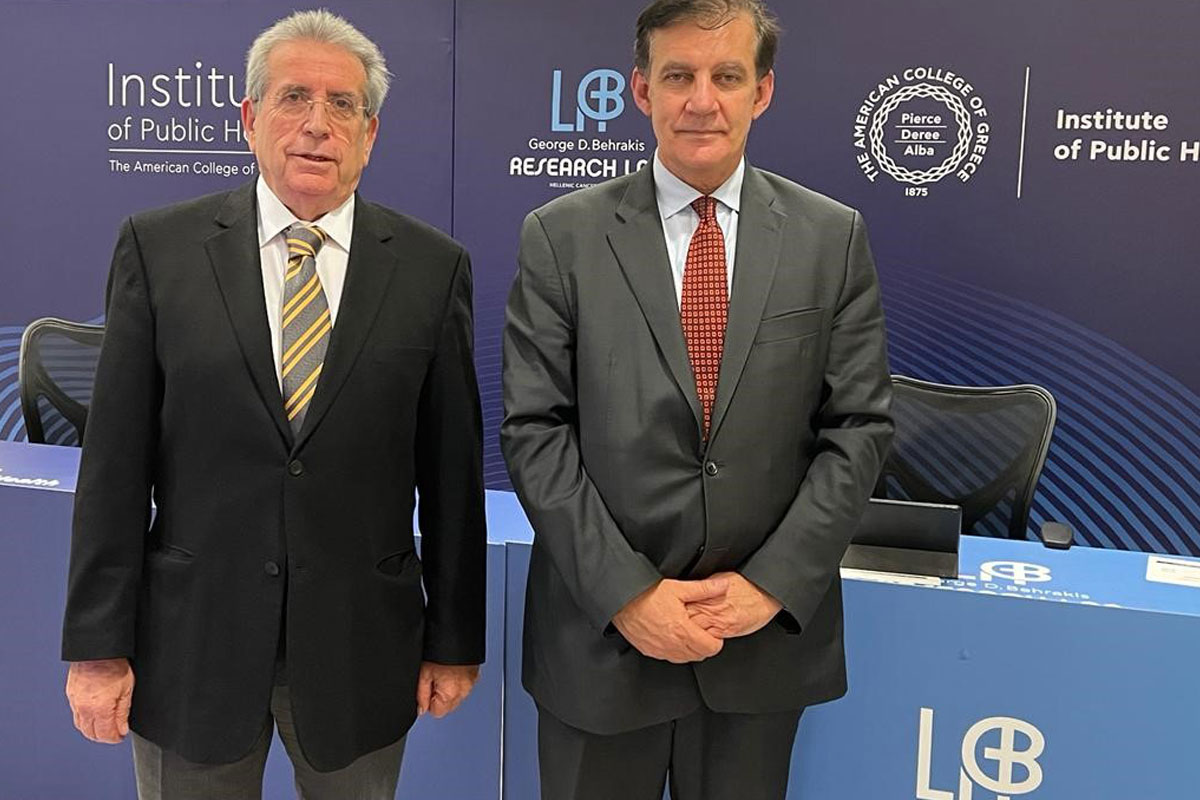
From left to right: Panagiotis Behrakis, Director of the Institute of Public Health, The American College of Greece; Meletios-Athanasios Dimopoulos, Hematologist – Oncologist, Professor and Rector of the National & Kapodistrian University of Athens
“Precision medicine is the best shield we currently have against cancer”, Meletios-Athanasios Dimopoulos, Hematologist – Oncologist, Professor and Rector of the National & Kapodistrian University of Athens, highlighted during his online lecture, held on Wednesday, February 2, 2022, part of the Institute of Public Health 7th Series of Lectures.
According to international data, cancer cases have increased during 2021, with 2.7 million new cases and 1.3 million deaths worldwide. According to Prof. Dimopoulos this increase in numbers is expected, due to the increased life expectancy, since with increasing age the chances of a gene mutation increase.
In Greece, more than 62,000 new cases and 33,000 deaths have occurred in 2020.
The most common types of cancer in females are:
- breast cancer (29%)
- colon cancer (12%)
- lung cancer (8%)
- endometrium cancer (8%)
- pancreatic cancer (4%)
while in males:
- lung cancer (19%)
- prostate cancer (18%)
- bladder cancer (14%)
- colon cancer (13%)
- pancreatic cancer (4%)
Cancer is an extremely heterogeneous disease to such a degree that even neoplasms with the same organ origin can be heterogeneous. Therefore, the time has come to distance ourselves from the standardized and undifferentiated therapies, in which patients with the same neoplasm receive the same treatment, and turn towards precision therapeutic approaches. The term “Precision Medicine” describes the type of Medicine that uses information from genomics, proteomics and the environment in order to design prevention, diagnosis and disease treatment of the specific patient.
Consequently, there is an imperative need to identify clinical, pathoanatomic and genomic markers that will guide therapeutic choices.
Precision medicine is the most important component in future therapeutic options of oncology patients.
Professor Behrakis presented the updated guidelines for lung cancer screening which suggest all asymptomatic smokers between the ages of 50-80 years old, with a 20 pack/year smoking history (including those who have quit within the past 15 years), to be subjected to a low-dose chest tomography (CT) scan yearly. Screening with low-dose CT has been shown to reduce mortality due to lung cancer by 20-30%.
